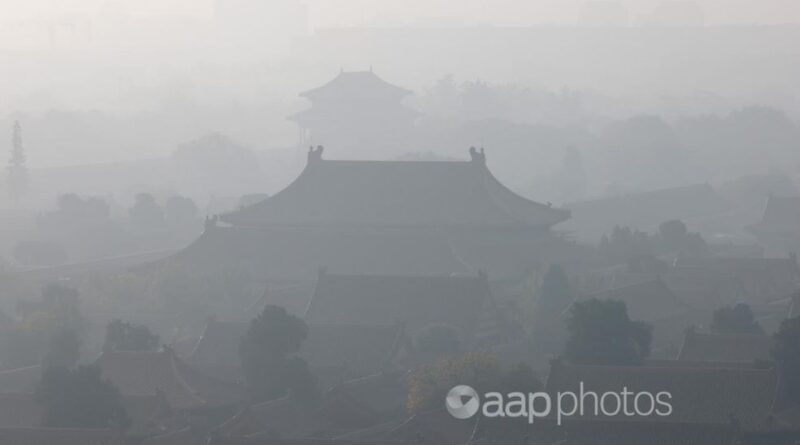Australia has not given China $50 million to ‘help their pollution’
Nik Dirga
December 19, 2024
WHAT WAS CLAIMED
The Australian government has given China $50m to clean up its pollution.
OUR VERDICT
Misleading. Australia donated to a UN fund to help vulnerable countries deal with adverse effects of climate change, but the money isn’t specifically for China or for reducing emissions.
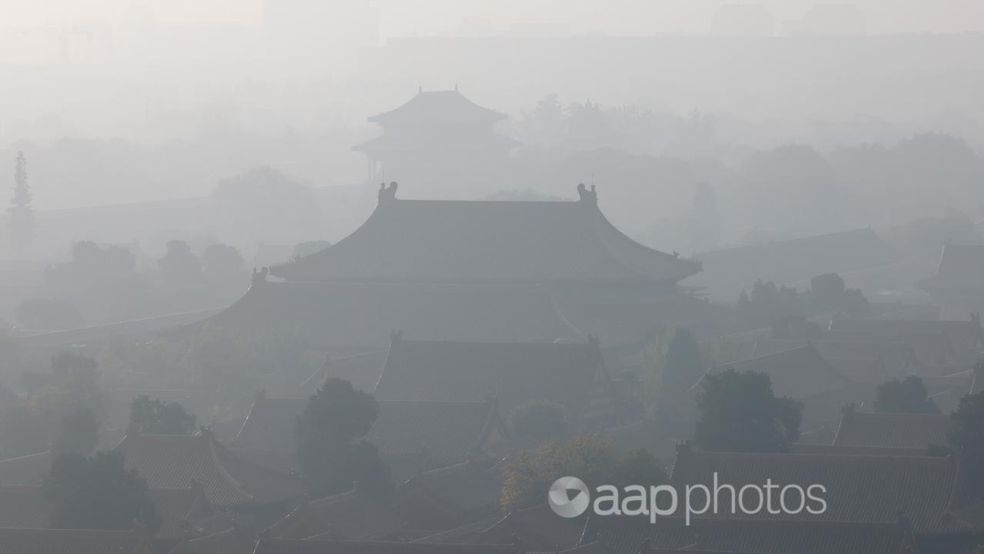
AAP FACTCHECK – Claims that Australia has pumped A$50 million into a fund for China to “help their pollution” are misleading.
Australia has contributed this amount to a UN fund to help with climate change disasters in developing countries, but the money is not explicitly for China or to help their pollution.
A Facebook post claims “Albo and Bowen, $50,000,000 AUD to the fund for China to help their pollution,” referring to Prime Minister Anthony Albanese and Minister for Climate Change and Energy Chris Bowen.
The post adds, “its our money not theirs.”
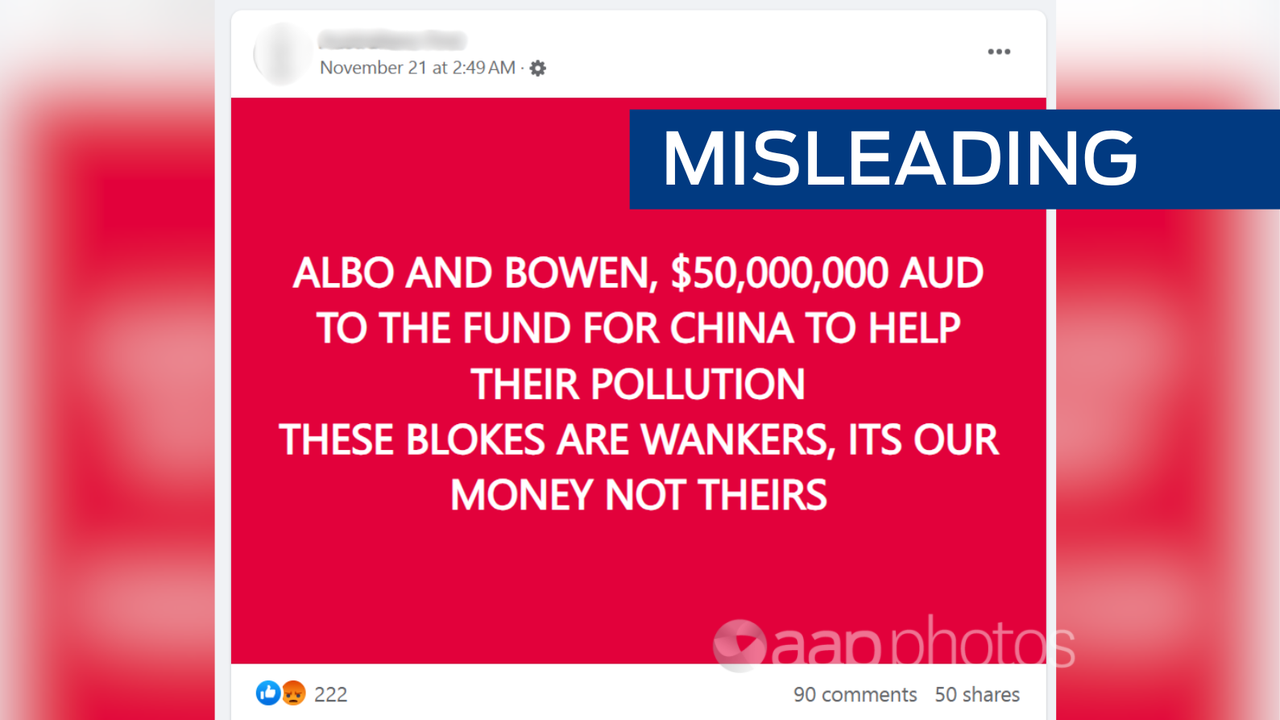
At the UN climate change conference COP28, delegates agreed to establish the “Fund for Responding To Loss And Damage”, which aims to help developing countries cope with the adverse effects of climate change including extreme weather events.
The World Bank has been named the interim secretariat host and trustee of the fund.
Foreign affairs minister Penny Wong, Mr Bowen and other government members announced in a joint statement on November 19 that Australia was contributing A$50 million to the fund, which appears to be what the Facebook post is referring to.
The statement specifically noted the Pacific region’s vulnerability to the effects of climate change, and did not mention China.
AAP FactCheck contacted Mr Bowen’s office for a further statement but did not receive a response.
Maggie Mutesi, an advisor to the executive director of the fund, told AAP FactCheck the claim was “inaccurate”.
She said the fund “is not designated for addressing pollution in specific countries”.
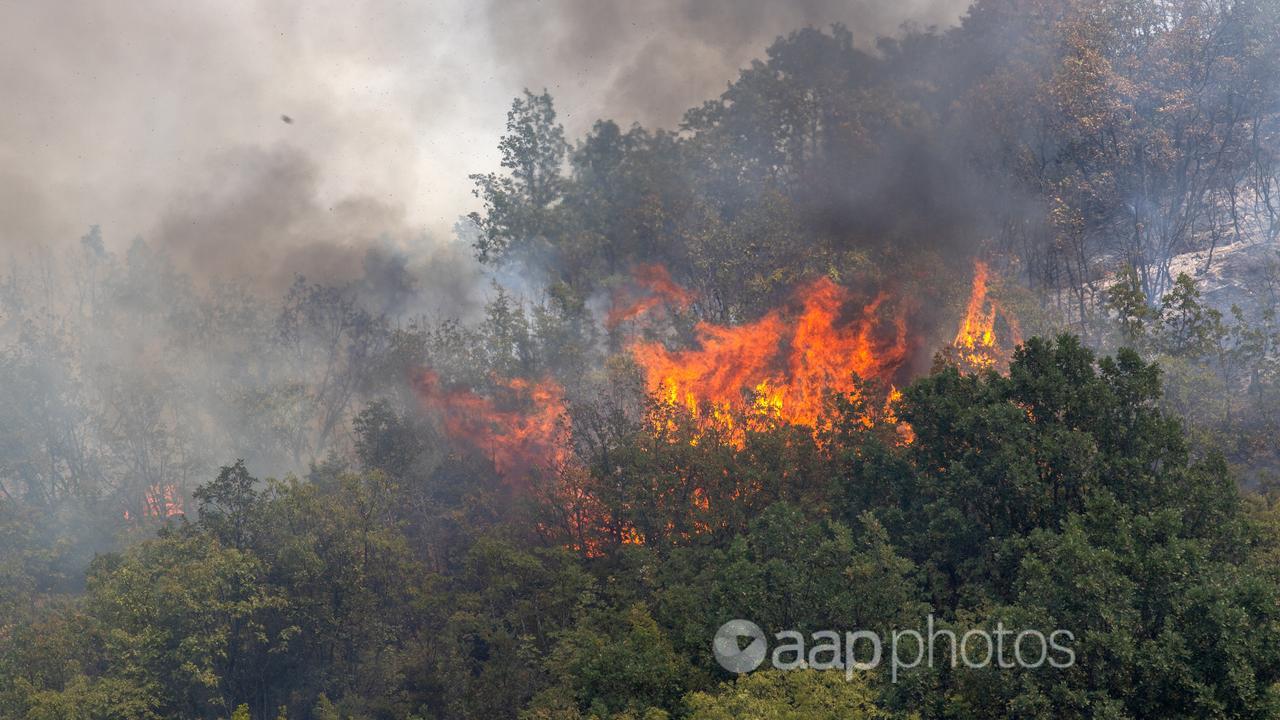
Professor Jacqueline Peel, a climate and environmental law expert from the University of Melbourne, called the social media post “a significant distortion of what the money is being contributed to”.
Prof Peel said the fund isn’t directed at reducing emissions, but rather about helping vulnerable countries deal with the costs of more frequent and severe disasters related to climate change.
She explained that countries targeted by the fund could include the least developed countries in Africa and small island states in the Pacific.
About US$745m (A$1.2 billion) has been pledged to the fund by 27 nations as of December 2024.
Prof Peel said China is not yet a contributor, but it has been encouraged to join given its role as the world’s largest emitter.
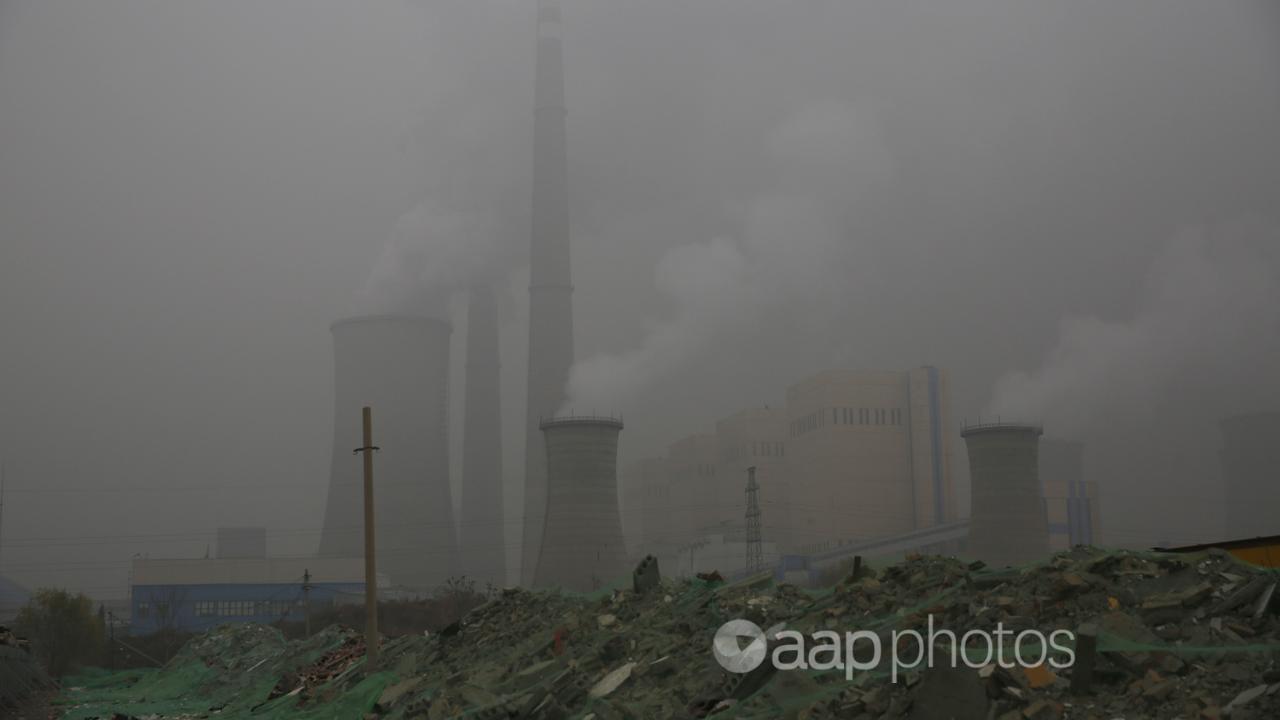
China has been regarded as a developing country under UN classifications dating back to 1992, but that categorisation has received increasing pushback from some countries in recent years.
The fund is still setting terms for how it will work, but if “developing nation” status is used as a criteria, China could theoretically be eligible for some funds. Regardless, this would not be for “helping their pollution” as claimed.
However, Prof Peel said China is “not at all” a likely recipient of these funds because it’s not likely to fall into the category of “particularly vulnerable countries”.
China itself has been providing climate finance to developing countries amounting to nearly US$45 billion (A$70.85 billion) between 2013 and 2022, according to a November 2024 report by the World Resources Institute.
Prof Peel said China now provides more climate finance to other developing countries than it receives. (AAP)
